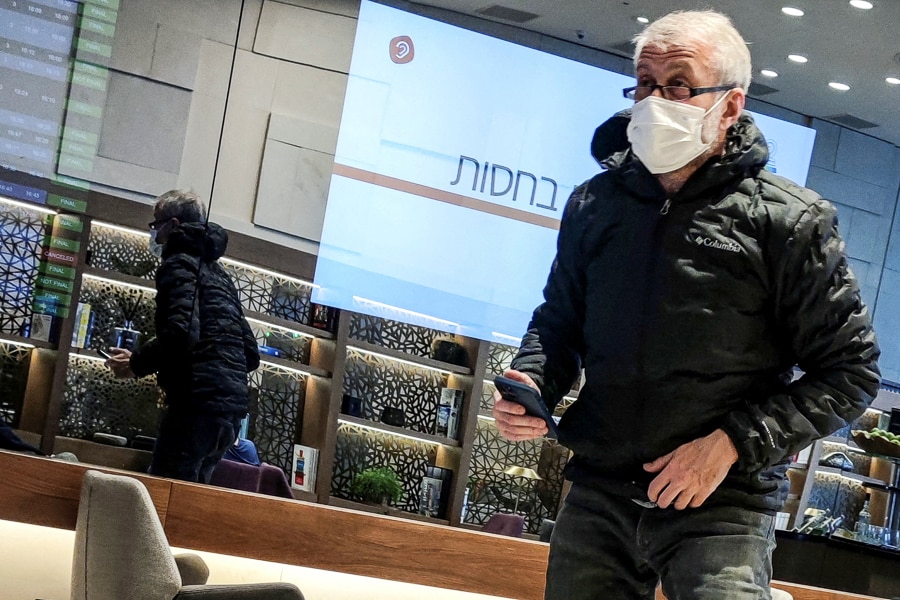
Russia-Ukraine: Allegations of possible poisoning emerge from peace talks
Russian oligarch Roman Abramovich, an ally of President Vladimir Putin and an intermediary in peace talks, suffered symptoms including impaired vision and peeling skin after the session in early March; several other officials participating in the same session contracted similar symptoms, a person close to President Volodymyr Zelenskyy of Ukraine told The New York Times
 Sanctioned Russian oligarch Roman Abramovich stands in a VIP lounge before a jet linked to him took off for Istanbul from Ben Gurion international airport in Lod near Tel Aviv, Israel, March 14, 2022.
Image: Stringer / Reuters
Sanctioned Russian oligarch Roman Abramovich stands in a VIP lounge before a jet linked to him took off for Istanbul from Ben Gurion international airport in Lod near Tel Aviv, Israel, March 14, 2022.
Image: Stringer / Reuters
The sporadic and so-far unproductive talks to end the fighting between Russia and Ukraine produced a bizarre new development Monday involving a Russian oligarch, a group of officials from both countries and suspicions of a potential poisoning at a negotiating session early this month.
The details were murky and difficult to sort out amid claims and counterclaims. But by day’s end, the flurry of allegations and suspicions was drawing notice in world capitals and online, and adding another level of intrigue to peace talks that have produced plenty of mixed messages and only limited progress.
The oligarch, Roman Abramovich, an ally of President Vladimir Putin of Russia and an intermediary in peace talks, suffered symptoms including impaired vision and peeling skin after the session in early March, a person close to the Russian billionaire said Monday. He recovered quickly, but Abramovich and his aides suspected the cause of the symptoms might be intentional, said the person, who insisted on anonymity to disclose private information.
Several officials participating in the same session contracted similar symptoms, a person close to President Volodymyr Zelenskyy of Ukraine told The New York Times. All the people affected took medication and felt fine within a day or two, said the person, who also insisted on anonymity because of the sensitive nature of the episode.
The Kremlin did not immediately respond to requests for comment. Ukrainian officials warned against sensationalism. No one produced any evidence of foul play.
©2019 New York Times News Service







